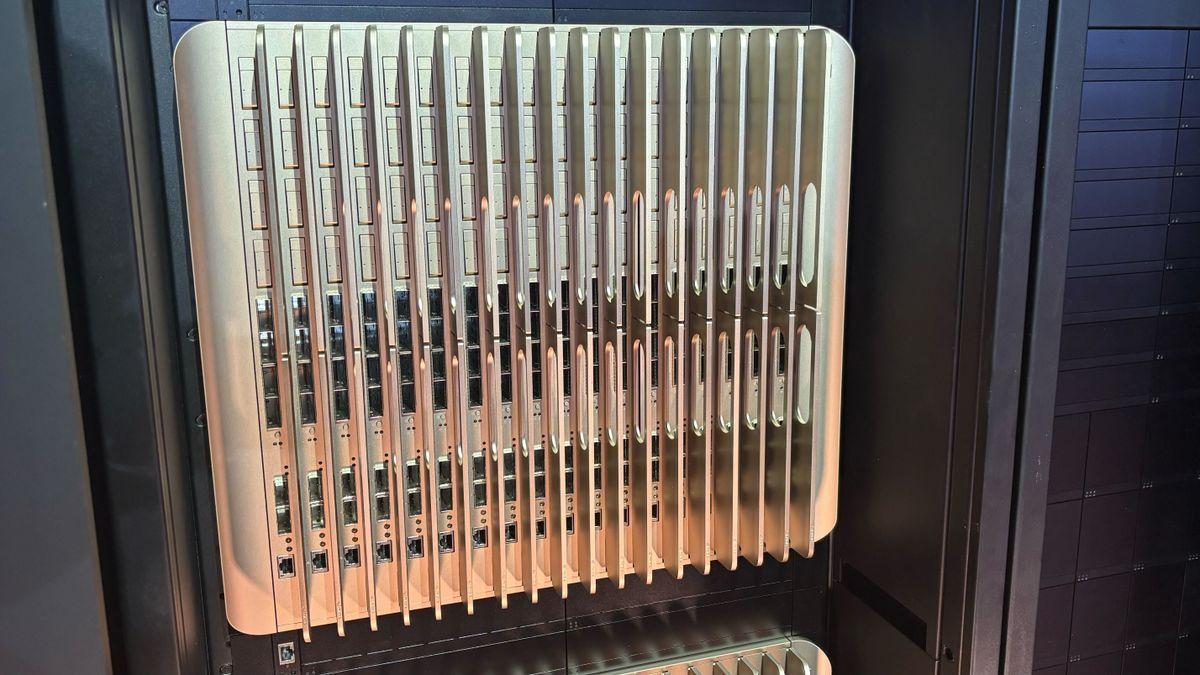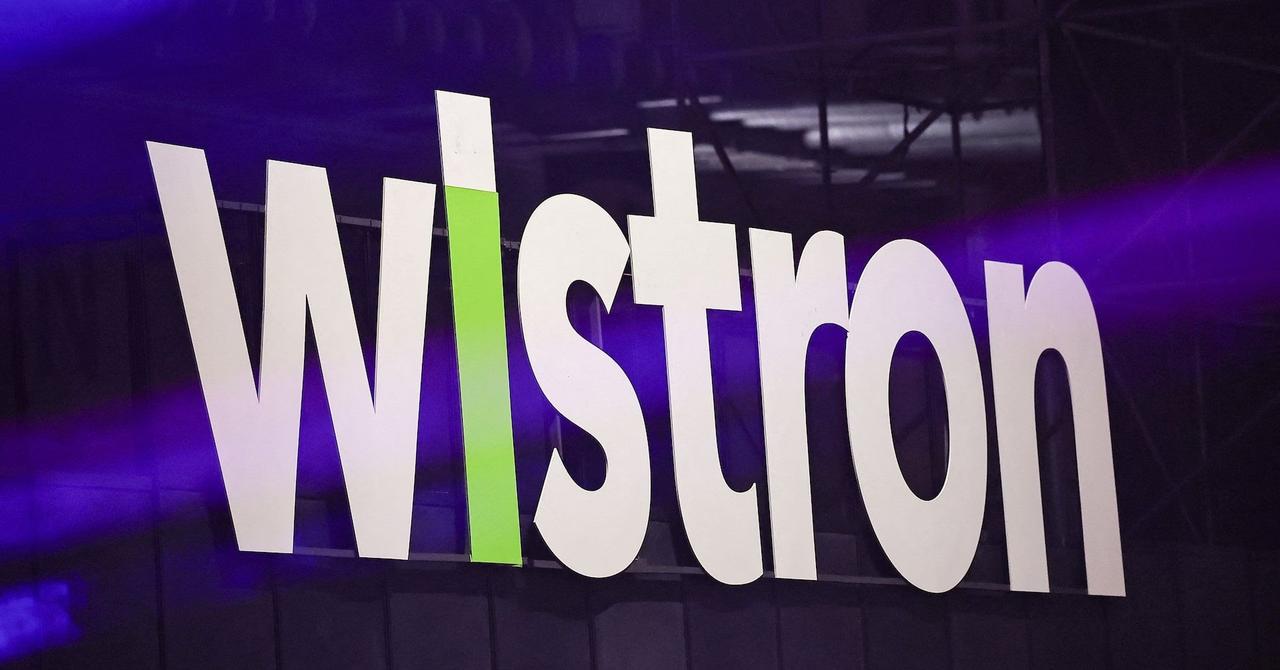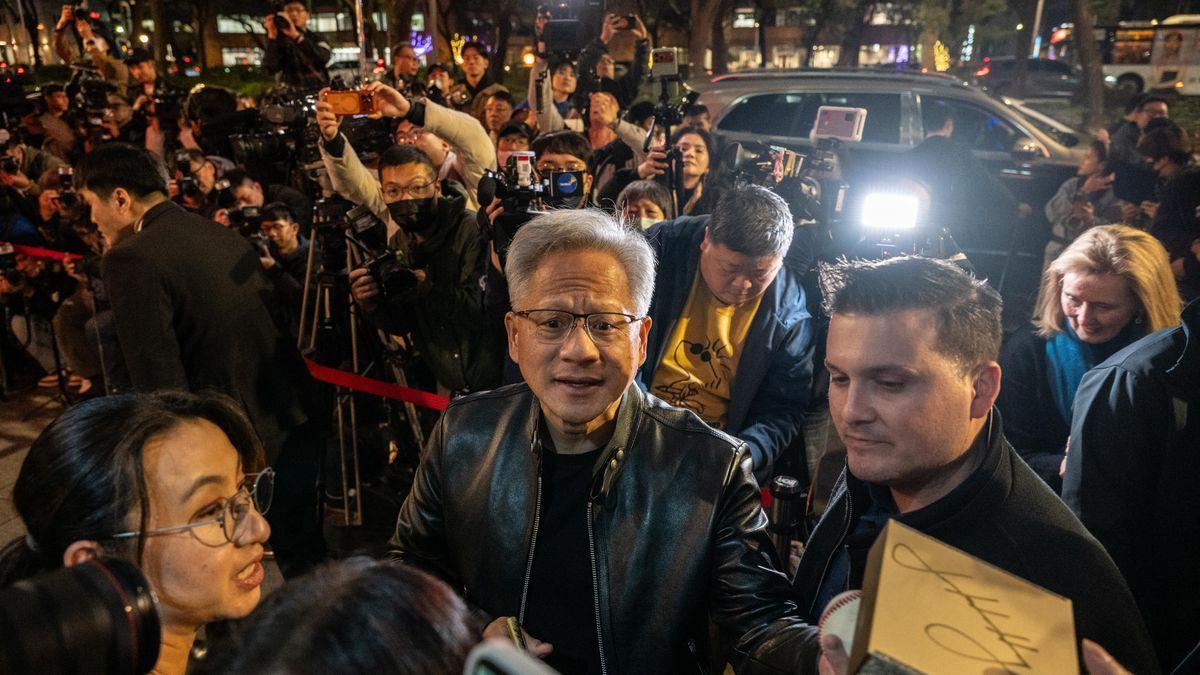Nvidia Secures Entire Wistron Server Plant Capacity Through 2026 for AI Hardware Production
2 Sources
2 Sources
[1]
Nvidia reportedly books entire server plant capacity through 2026 to build Blackwell and Rubin AI servers, pushing out other potential customers
Being the world's largest supplier of processors for AI applications requires Nvidia to stay ahead of rivals in terms of technology and supply. To that end, Nvidia books the vast majority of TSMC's CoWoS capacity and is becoming actively engaged in the broader AI supply chain. To ensure that its clients get the Blackwell and Rubin-based machines they need, Nvidia this week booked an entire Wistron server plant in Taiwan to build AI servers, according to Economic Daily. Wistron's facility near Zhubei in the Southern Taiwan Science Park began production this quarter and was officially inaugurated on June 19. Economic Daily claims Nvidia has secured all available capacity at the plant, with confirmed orders extending through 2026. While this information has not been formally confirmed, the chief executive of Wistron said at the inauguration event that current contracts for AI servers extend at least a year into the future, according to Commercial Times. The production capacity of this particular plant is unknown, but Wistron's seven plants employ over 7,000 people and collectively produce approximately 240,000 systems based on the Blackwell platform each quarter. Due to the rapid growth in demand, the company anticipates that its existing capacity may not be able to keep pace with demand as early as 2026, according to the report. To handle increasing workloads, Wistron has already secured an adjacent building from Lianfa Textile to serve as a second plant (A2) in Zhubei. This site is scheduled to go online next year and will also build Nvidia-based servers. Once both sites are operational, the company's AI-related production capacity in Taiwan is expected to double. Shipments of AI servers became primary growth drivers not only for Wistron but also for Quanta (the largest producer of AI servers) and Foxconn in recent years. Therefore, Wistron has been steadily expanding its manufacturing footprint across Taiwan, including upgrades to its existing facilities in Hsinchu's Hukou district over the past two years. In addition, Wistron is also building a brand-new AI server plant near Dallas, Texas, and is expanding existing capacities in the U.S. Securing capacity at server manufacturers ensures that Nvidia's partners, including system suppliers and cloud service providers, receive their Nvidia-based machines when needed and in the quantities they require, despite tight supply. This not only ensures a robust supply chain and a steady increase in Nvidia's revenue, but also ensures that its rivals are unable to use the same capacities to build their products. Considering the significant demand for AI servers these days, we can hardly blame Nvidia if the company did, in fact, secure capacity at server assembly plants.
[2]
AI boom pushes Wistron to rapidly scale up server production
The demand for AI remains robust, and visibility is high. Wistron President and CEO Jeff Lin noted that most customers are placing rolling 12-month orders, and current demand is expected to remain strong through May 2026. How strong? According to Lin, Wistron's newly completed AI Smart Campus in Zhubei is already expected to face capacity constraints by 2026. Wistron held an opening ceremony for its new global operations headquarters -- AI campus in Zhubei -- on June 19. The event was attended by Vice President Bi-khim Hsiao, executives from Wistron's affiliates, and a number of upstream and downstream suppliers. Nvidia CEO Jensen Huang, a key AI server client of Wistron, also sent a special video message congratulating the company. In a post-event interview, Jeff Lin said the entire facility is dedicated to AI server production and is currently undergoing equipment installation. Production can begin once the equipment is in place. Based on current customer orders, the plant is expected to be running at full capacity by 2026. To meet booming demand, Wistron announced in February that it had signed a lease with Lien Fa Textile for a nearby facility covering 17,000 ping (approx 56,000 square meters), which will serve as an additional AI server production site. The 10-year lease will cost no more than NT$2.503 billion (approx. US$84 million). While Lin did not disclose specific capacity expansion figures for the Zhubei campus, he confirmed that the entire building will be used for AI server production. Combined with the newly leased facility, Wistron expects to significantly scale up production in Taiwan. The company remains on track to double AI server shipments in 2025. Lin admitted the speed of capacity utilization was unexpected. Wistron now operates three manufacturing locations in the Hsinchu area: Hukou, Hsinchu Science Park, and Zhubei. With operations expanding rapidly, the company is also increasing R&D and sales staffing. Its corporate headquarters on Jiuzong Road in Taipei is expected to be completed in 2027. However, the current office in Xizhi will still be retained due to space constraints. As for overseas production, Wistron's AI servers are still primarily built in Taiwan, with only a small volume currently produced at its Texas facility. That plant produces the same server models as the Zhubei campus and is expected to scale up mass production in 2026. When asked whether Wistron might shift PC production to the US, Lin said that some customers have requested feasibility assessments. However, discussions remain at an early exploratory stage, with no decisions made yet. He added that supply chain planning has evolved from a simple Plan A and Plan B, to now encompassing Plans A through E, to accommodate the uncertainties of US tariff policies.
Share
Share
Copy Link
Nvidia has reportedly booked all available capacity at Wistron's new server plant in Taiwan through 2026, focusing on the production of Blackwell and Rubin AI servers. This move highlights the increasing demand for AI hardware and Nvidia's strategy to maintain its market leadership.
Nvidia's Strategic Move in AI Hardware Production
In a bold move to solidify its position as the world's largest supplier of AI processors, Nvidia has reportedly secured the entire production capacity of Wistron's new server plant in Taiwan through 2026
1
. This strategic decision aims to ensure the timely production of Nvidia's Blackwell and Rubin AI servers, potentially pushing out other customers in the process.Wistron's Expanding AI Server Production
Wistron, a key player in AI server manufacturing, recently inaugurated its new AI Smart Campus in Zhubei on June 19, 2023
2
. The facility, dedicated entirely to AI server production, is part of Wistron's ambitious expansion plans.
Source: DIGITIMES
2
.To meet the surging demand, Wistron has already secured an adjacent building from Lianfa Textile, set to become operational next year. This expansion is expected to double Wistron's AI-related production capacity in Taiwan
1
. The company is also establishing a new AI server plant near Dallas, Texas, further expanding its global manufacturing footprint1
.Impact on the AI Hardware Market
Nvidia's move to book the entire capacity of Wistron's new plant underscores the intense competition in the AI hardware market. By securing this production capacity, Nvidia aims to:
- Ensure a robust supply chain for its partners and cloud service providers
- Maintain steady revenue growth
- Potentially limit competitors' access to manufacturing resources
1
The demand for AI servers has become a primary growth driver not only for Wistron but also for other major manufacturers like Quanta and Foxconn
1
. Wistron's Jeff Lin noted that most customers are placing rolling 12-month orders, with current demand expected to remain strong through May 20262
.Related Stories
Global Expansion and Supply Chain Considerations
While Taiwan remains the primary production hub for Wistron's AI servers, the company is also scaling up its operations in the United States. The Texas facility, which produces the same server models as the Zhubei campus, is expected to ramp up mass production by 2026
2
.
Source: Tom's Hardware
In light of evolving U.S. tariff policies, Wistron is adopting a flexible approach to supply chain planning. Jeff Lin mentioned that the company now considers multiple contingency plans (up to "Plan E") to navigate potential uncertainties in the global trade landscape
2
.Nvidia's Market Position and Future Outlook
Nvidia's aggressive capacity booking aligns with its broader strategy to maintain its leadership in the AI chip market. The company has already secured the majority of TSMC's CoWoS (Chip-on-Wafer-on-Substrate) capacity, a crucial packaging technology for high-performance AI chips
1
.As the AI boom continues, Nvidia's proactive approach to securing production capacity may prove crucial in meeting the escalating demand for AI hardware. However, this move could also intensify competition and potentially lead to supply constraints for other players in the market.
References
Summarized by
Navi
[1]
Related Stories
Wistron's New US Plants to Boost Nvidia's AI Server Production by 2024
16 May 2025•Business and Economy

Nvidia Expands AI Infrastructure in Taiwan with Supercomputers and New Headquarters
19 May 2025•Technology

NVIDIA's Blackwell GPUs Sold Out for Next 12 Months Amid Unprecedented AI Demand
12 Oct 2024•Technology

Recent Highlights
1
ByteDance's Seedance 2.0 AI video generator triggers copyright infringement battle with Hollywood
Policy and Regulation

2
Demis Hassabis predicts AGI in 5-8 years, sees new golden era transforming medicine and science
Technology

3
Nvidia and Meta forge massive chip deal as computing power demands reshape AI infrastructure
Technology





